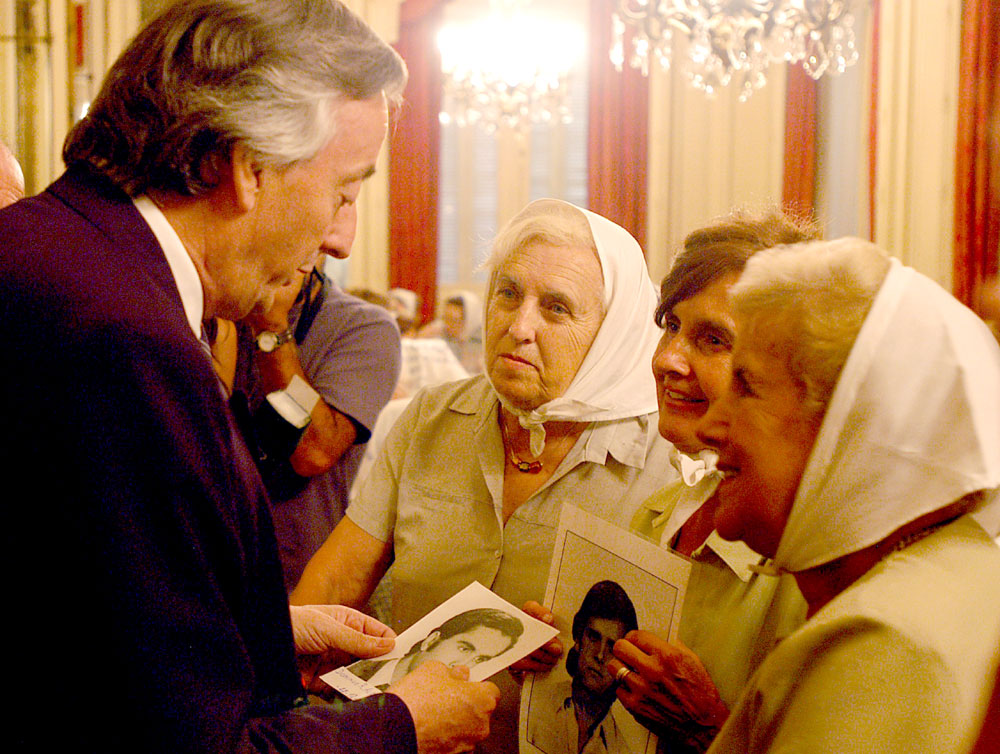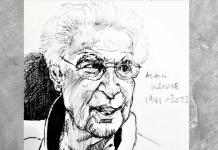Mike Gonzalez writes
Gabriel GarcÃa Márquez, who has died aged 87, was a globally recognised name even before he won his Nobel Prize in literature on 8 December 1982. His greatest work One Hundred Years of Solitude was translated into 20 languages within a couple of years of its 1967 publication. His journalism, stories and novels captivated an international audience. Yet he remained unmistakably Latin American – and more specifically and recognisably, Colombian.
It was not simply the settings that made the work of GarcÃa Márquez so Latin American – the high Andes and the dense rain forests, the chaotic port cities and the coastal plantations. Nor was it just the extravagant cast of characters travelling through his pages, bursting with sexual energy, wise with secret knowledges of the rural indigenous past, bearers of endless stories and boundless herbal cures, bombastic mayors and self-appointed military leaders. Above all it was his reflection of the shared experience of every Latin American, captured in the beautiful title of his greatest novel.
GarcÃa Márquez’s books form a single story and a single history – the two are not the same. History is the official narrative of that continent, written, printed and imprinted with colonial authority. That continent’s majorities, often unlettered, unacknowledged, hidden behind the grandeur of the Word, enslaved to the official version of events – this history written by colonisers had rendered them invisible.
The majority is not silent
But they were neither foolish nor silent. They had their own story to tell, their own experience to share, and a language to tell it in that could keep it safe. A single story in a single continuous time, where knowledge and suffering were held and passed on: in ritual and myth, in an oral culture all too easily dismissed as superstition by keepers of the Word
In GarcÃa Márquez’s writing, these two histories, these parallel cultures, meet in a narrative he called magical realism. The notion was picked up enthusiastically by Western writers, “discovering” these silent continents – Africa, Asia, Latin America… for the “first time”.
 But they misunderstood magic as Márquez understood it – not as primitive superstition but as popular memory that retains and absorbs its own history, retells it in different frameworks, in which the everyday oppressions are swept aside and history retold in the collective imagination.
But they misunderstood magic as Márquez understood it – not as primitive superstition but as popular memory that retains and absorbs its own history, retells it in different frameworks, in which the everyday oppressions are swept aside and history retold in the collective imagination.
6 December 1928. A strike of workers on a banana plantation in Colombia, owned by a multinational, brutally crushed with hundreds murdered. Newspapers reported nothing. The martyrs of the workers cause are simply airbrushed out of history. But the communities from which they came did not forget, and the massacre was told and retold, in songs, in stories. I was in Mexico in 1969, a year after the murder of 500 students at protest rally in the centre of the capital. Deaths denied too, but not left to die by popular memory.
30 April 1970: Mothers of revolutionaries murdered by the military regime march outside the presidential palace wearing photographs of their children around their necks. Their white scarves become a symbol of a continental struggle against impunity: a hope, an affirmation that the course of history can be changed and a different story written.
Endless stories, a different time
Born in 1928, GarcÃa Márquez grew up in the wonderfully named town of Aracataca (just try saying it) where peasants would come down from the hills to meet the train. He remembers endless stories his grandmother told, watching her concoct herbal remedies that belonged to a different time.
 Aracataca became the community of Macondo, an alternate Latin America that is the setting for all his novels. We witness to its foundation in One Hundred Years under the leadership of Colonel José Arcadio BuendÃa who wants to bring community there from a sort of Garden of Eden.
Aracataca became the community of Macondo, an alternate Latin America that is the setting for all his novels. We witness to its foundation in One Hundred Years under the leadership of Colonel José Arcadio BuendÃa who wants to bring community there from a sort of Garden of Eden.
But where is it? The colonel’s party search east, south, north, west – but there is no route into the wider world. Instead that other world arrives in strange and unexpected ways – ice, false teeth, a train – as unexpected as they are inexplicable. They are products of other histories, other developments, transformations Macondo has never participated in. That is the origin of their solitude, their isolation from the tide of history, and that is why they experience change as magical. It is a source of comedy. It is a source of tragedy.
The banana company arrives in the short novel Leaf Storm, as if from nowhere, builds its fenced camp, exploits the local population, prostitutes its girls, just as suddenly disappears, leaving only devastation in its wake. Modernity has come and gone, leaving nothing. Bananas, oil, tin, gold, silver, copper, jute, nitrates.
Dreams that sustain us
GarcÃa Márquez’s first novel, published in 1958, is the wonderful short piece No One Writes To The Colonel. The colonel and his wife Ursula live in poverty as he waits for his war pension to arrive. It never does. The practical Ursula insists they sell their fighting cock – their only possession of value – to pay for food. The colonel, always the dreamer, refuses, sure that his cock will win one day.
“You can’t live on dreams,” says Ursula. “No,” the colonel replies, “but they keep you going.” Time and again, dreams sustain his characters – pursuit of love, escape from the prison of solitude, refusal to accept a destiny foretold. That is the material for his beautiful, magical language. As Márquez said in his Nobel speech:
Faced with this awesome reality we, the inventors of tales, who will believe anything, feel entitled to believe that it is not yet too late to engage in the creation of the opposite utopia. A new and sweeping utopia of life, where no one will be able to decide for others how they die, where love will prove true and happiness be possible, and where the races condemned to one hundred years of solitude will have, at last and forever, a second opportunity on earth.
Mike Gonzalez, April 2014




















[…] Originally published at Revolutionary Socialism in the 21st Century. […]
[…] American left – the writer Gabriel García Márquez who died last Thursday. His obituary, originally published by RS21, is reproduced below in […]
Very beautifully written. I hope he is looking down on us and praises this piece. May the king rest in peace!